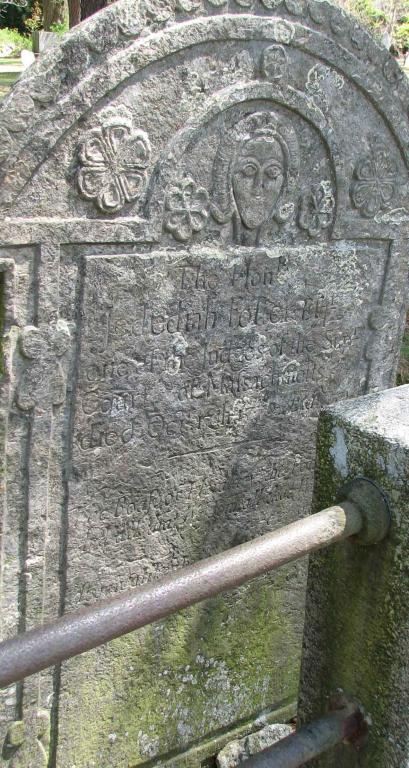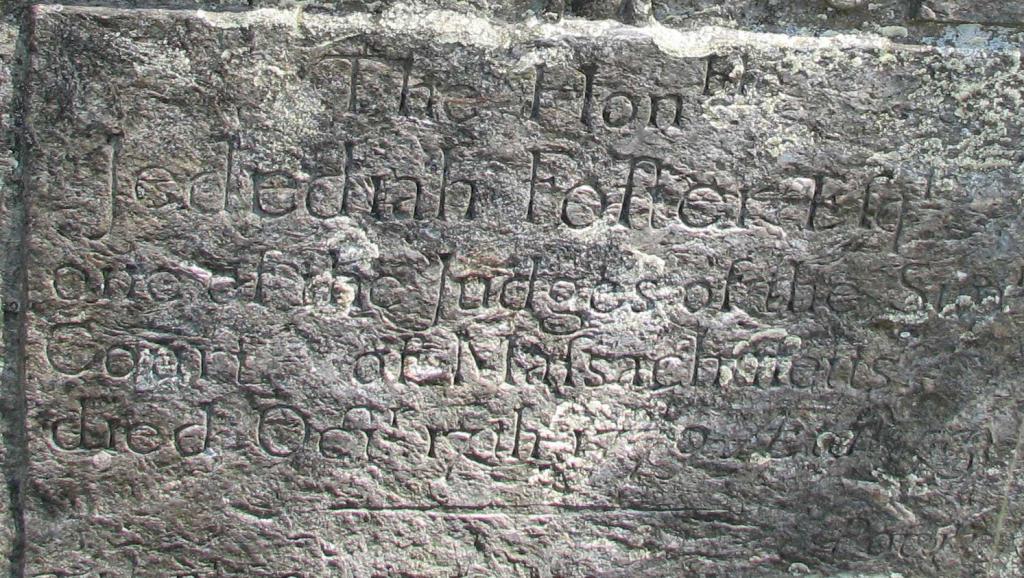Jedediah FOSTER
SAR Patriot #:
P-160802
The following information was assembled from numerous sources and cannot be used directly as proof of Qualifying Service or Lineage.
It is considered a research aid and is intended to assist in locating sources that can be used as proof.
State of Service: MA
Qualifying Service: Civil Service / Patriotic Service
DAR #: A041621
Birth: 10 Oct 1726 Andover / Essex / MA
Death: 17 Oct 1779 Brookfield / Worcester / MA
Qualifying Service Description:
- 1776, 1770, served as an Associate Justice
- 1775, Judge of the Superior Court
- 1775, Member of Provincial Congress, Representative in General Assembly of Massachusetts
- 1776, served as a Private in the company of Captain Selah Heart, commanded by Colonel Erastus Woolcot; 2 Month tour. [Note: this service has been attributed to a younger man of the same name]
- The Records of the General Assembly refer to Jedediah as Colonel Jedediah Foster
Additional References:
- The Journals of Each Provincial Congress of MA in 1774 and 1775.., MA. Boston: Dutton and Wentworth, 1838, pg 82, 276
- Davis, William T, History of the Judiciary of MA, Boston: self-published, 1900, pg 87, 89, 101, 158, 161, 167, 214
- Pierce, Frederick Clifton, Foster Genealogy; Being the Record of the Posterity of Reginald Foster, an Early Inhabitant of Ipswich, in New England, .., Illinois. Chicago: W.B. Conkey Co, 1899, pg 160
- Journals of the House of Representatives of MA, 1775, Vol 51, Part 1, MA. Boston: MA Historical Society, 1982, pg 3-4, 13, 26, 33, 46, 52, 92, 118, 133, 166, 185, 197, 199, 210
- Secretary of the Commonwealth, MA Soldiers, and Sailors of the Rev War, Vol V, MA. Boston: Wright & Potter Printing Co, 1901, pg 906
Spouse: Dorothy Dwight
Children: Theophilus; Theodore; Peregrine; Ruth;
Members Who Share This Ancestor
| Date Approved | Society | ACN | SAR Member Info | Lineage via Child | View Application Detail | |
|---|---|---|---|---|---|---|
| 2001-06-20 | AZ | 9659 | Paul Homer Duffey (155982) | Theophilus | ||
| 2002-06-28 | NY | 13822 | Walter Seymour Foster II (158673) | Theodore | ||
| 2002-06-28 | NY | 13823 | Brian Bailey Foster (158674) | Theodore | ||
| 2008-08-26 | CA | 32663 | Robert Harold Schroeder (172318) | Theophilus | ||
| 2017-08-04 | FL | 74174 | William Lloyd Bristol (198877) | Theophilus | ||
| 2024-10-11 | KS | 113565 | Steven R. Hitchens (231330) |
Burial:
Location:
West Brookfield / Worcester / MA / USA
Find A Grave Cemetery #:
Marker Type:
SAR Grave Dedication Date:
Comments:
- An upright stone that is contemporary with the death of the Patriot
- Images provided with permission from Sharon, Find-a-Grave member # 47210373
Directions to Cemetery / Gravesite:
- From Worcester Regional Airport: Take Airport Dr and Marshall St to Hemlock St in Leicester
- Follow Hemlock St and Bond St to MA-9 W in Spencer
- Follow MA-9 W to Cottage St in West Brookfield
- Turn right onto Cottage St, destination will be on the left

